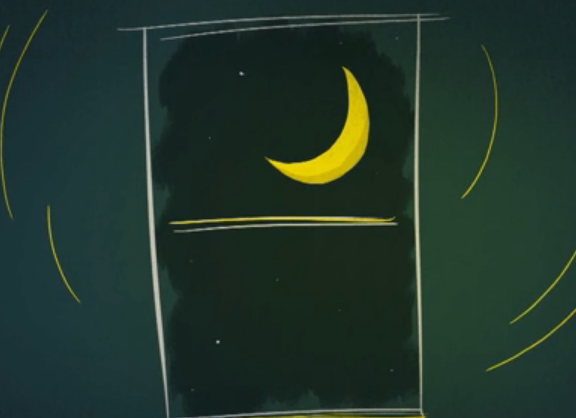In 1965,17-year-old high school student, Randy Gardner stayed awake for 264 hours.
1965年,17岁的高中生兰迪·加德纳264小时没有睡觉。
That's 11 days to see how he'd cope without sleep.
这是11天,看他会怎么应对不睡觉。
On the second day, his eyes stopped focusing.
第二天,他的目光停止对焦。
Next, he lost the ability to identify objects by touch.
接下来,他失去了通过触摸来识别物体的能力。
By day three, Gardner was moody and uncoordinated.
到第三天,加德纳喜怒无常,变得不协调。
At the end of the experiment, he was struggling to concentrate,
在实验结束时,他奋力集中,
had trouble with short-term memory, became paranoid, and started hallucinating.
短期记忆出现问题,变得偏执,并且开始出现幻觉。

Although Gardner recovered without long-term psychological or physical damage,
虽然加德纳恢复了,并没有长期的心理或物理伤害,
for others, losing shuteye can result in hormonal imbalance, illness, and, in extreme cases, death.
对有些人来说,失去睡眠可能会导致荷尔蒙失调、疾病,并且在极端情况下死亡。
We're only beginning to understand why we sleep to begin with, but we do know it's essential.
我们才刚刚开始理解为什么我们要睡觉,但我们知道这是必不可少的。
Adults need seven to eight hours of sleep a night, and adolescents need about ten.
成年人需要一个晚上七八个小时的睡眠,青少年需要大约十个小时。
We grow sleepy due to signals from our body telling our brain we are tired,
我们犯困是由于我们的身体信号告诉我们的大脑我们累了,
and signals from the environment telling us it's dark outside.
环境就是告诉我们天黑了的信号。
The rise in sleep-inducing chemicals, like adenosine and melatonin, send us into a light doze that grows deeper,
催眠化学品的兴起,像腺苷和褪黑激素,把我们从打盹变成深眠,
making our breathing and heart rate slow down and our muscles relax.
使我们的呼吸和心脏速率减慢,让我们的肌肉放松。
This non-REM sleep is when DNA is repaired and our bodies replenish themselves for the day ahead.
此非REM睡眠时是DNA提前一天修复我们的身体、补充自己的时候。



